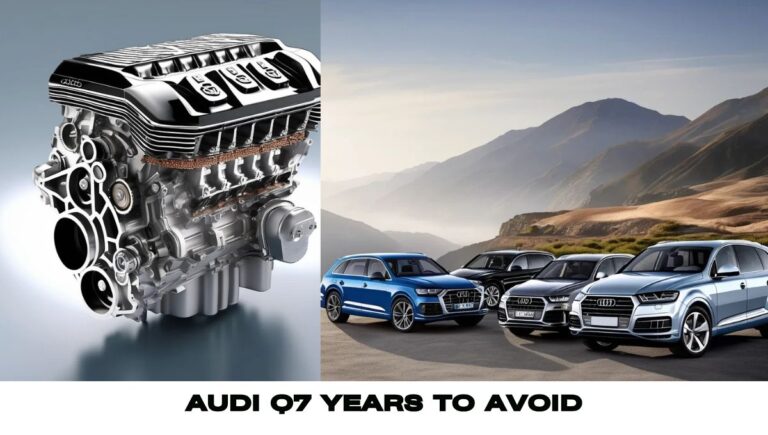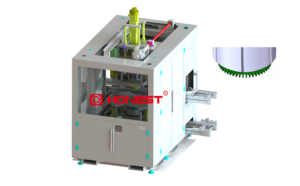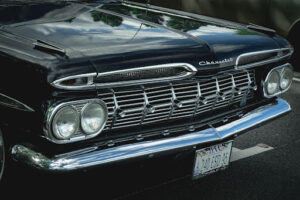The Audi Q7 is a great choice, offering three rows of seating and excellent road performance. Before finalizing your vehicle choice, make sure it’s practical for your needs. For example, you may want to know which Audi Q7 model years to avoid for the best experience.
Avoid Audi Q7 models from the following years: 2015, 2017, 2018, 2019, and 2021.
If you want to learn more about the Audi Q7 years to avoid, you’re in the right place. Knowing which versions are the worst will help you choose the best one for your needs. Keep reading to find out which years to avoid, which to consider, and other useful information about the vehicle.
If you want to learn more about Audi, begin your informational journey with Carsdestiny.
Table of Contents:
What Year Audi Q7 Models Are Safe to Purchase Used?
There are several Audi Q7 years to avoid, but many models are safe to buy used if you want to get the most value for your money.
Here are the top years for the Audi Q7:
- 2011 Audi Q7
- 2014 Audi Q7
- 2020 Audi Q7
- 2022 Audi Q7
- 2023 Audi Q7
These models provide an excellent driving experience. While these years aren’t perfect, they are significantly better than other Audi Q7 years. Those looking to invest in a Q7 will be pleased with these options.

Which Year Models of Audi Q7 to Avoid?
Just as there are excellent years for the Audi Q7, there are also years to steer clear of. We recommend steering clear of these models as they require excessive time and money to maintain in excellent condition.
Here are the Audi Q7 years to avoid:
- 2007 Audi Q7
- 2015 Audi Q7
- 2017 Audi Q7
- 2018 Audi Q7
- 2019 Audi Q7
- 2021 Audi Q7
These models tend to be the most problematic.
Among these, the 2017 Audi Q7 is the worst, struggling with engine faults. Many customers and professional reviews report excessive oil leakage and sudden engine breakdowns on the road.
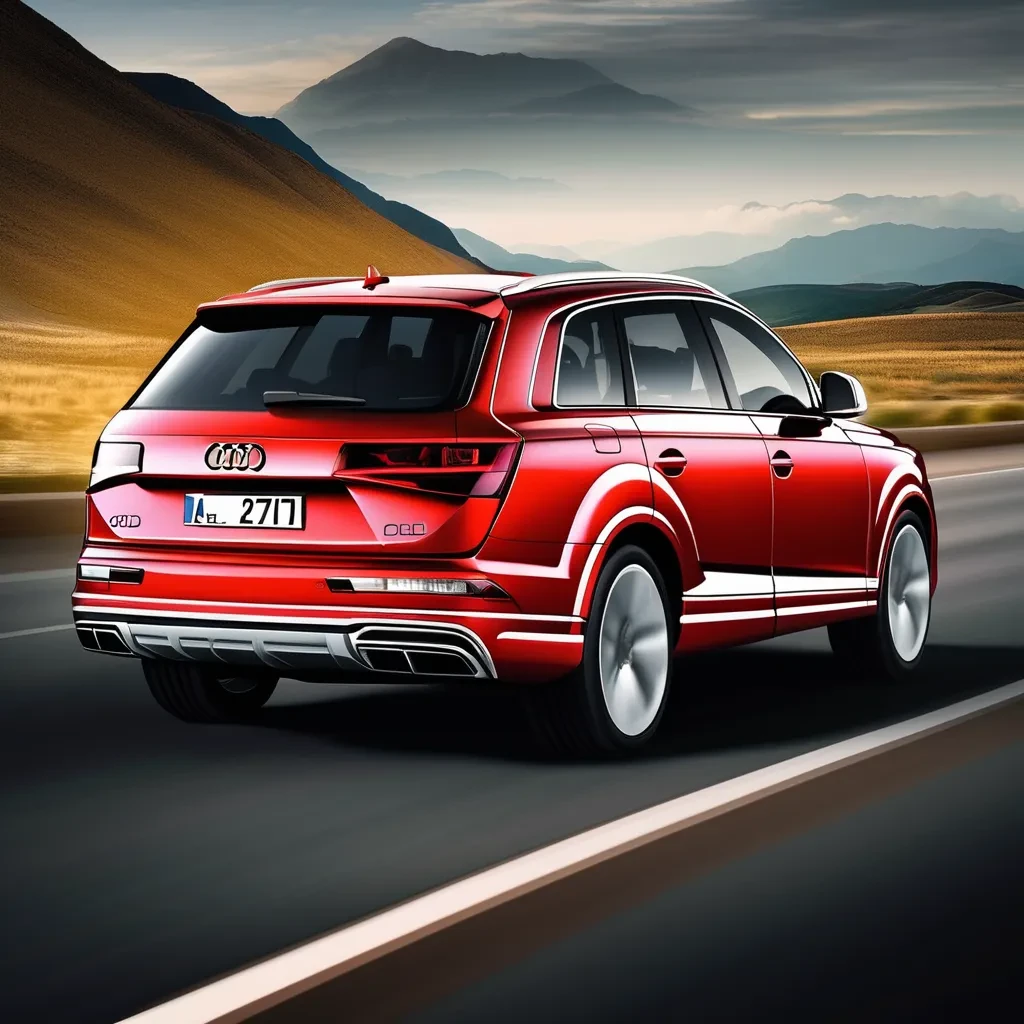
Read Also: Drive System Fault Audi – A Comprehensive Visual Guide!
Common Audi Q7 Problems
No matter which version of the Audi Q7 you buy, there will be some issues. No vehicle is without flaws, and the Audi Q7 is no exception. Knowing these potential problems in advance can help you keep up with maintenance.
The most common issues with the Audi Q7 are:
- Check engine light turning on
- Uneven ride height
- Cracking components
These are a few of the Audi Q7’s main issues.
These issues are more likely to occur in the Audi Q7 models from the list of years to avoid. However, they can also appear in versions with poor maintenance from previous owners, so keep these factors in mind when test-driving a used vehicle.
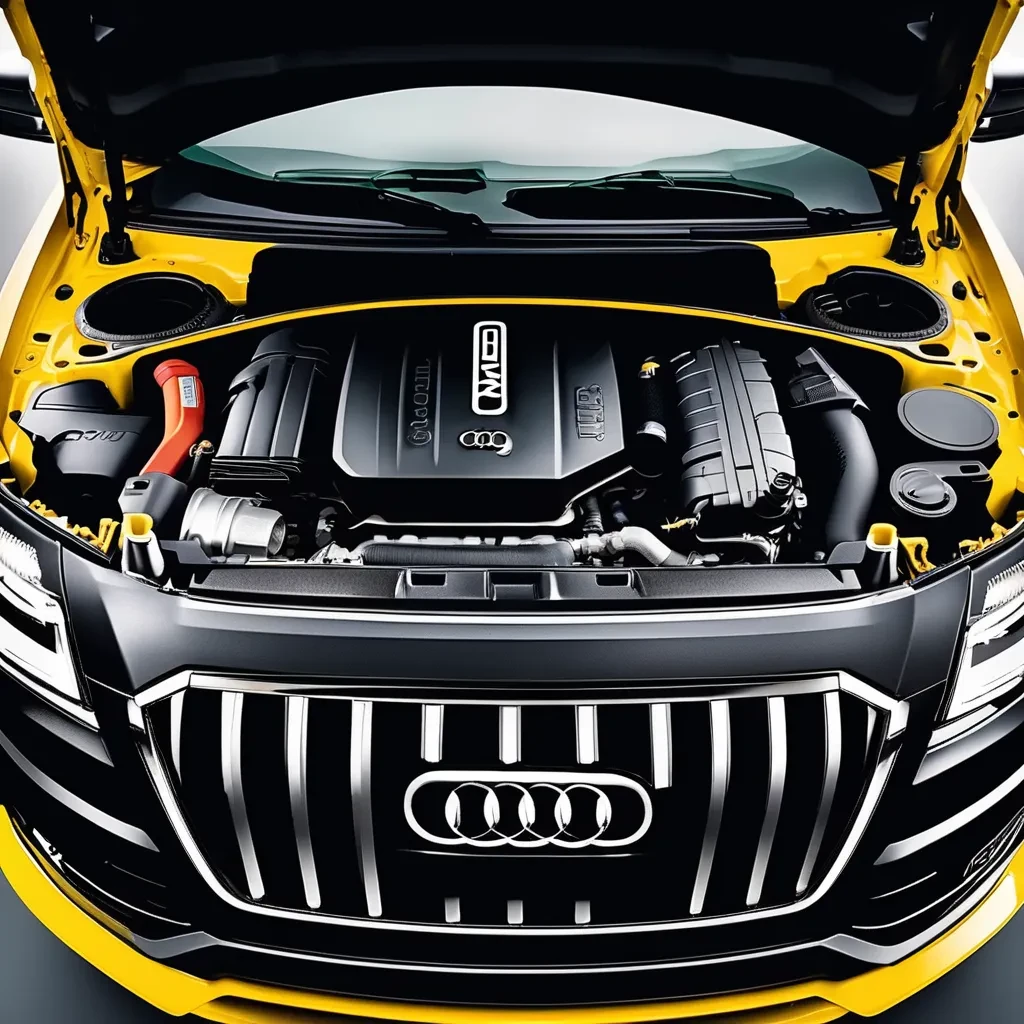
Read Also: Does Valvoline do Audi oil Changes? – A Deep Dive!
Are Audi Q7s Typically Reliable?
Unfortunately, the Audi Q7 isn’t the most dependable. It tends to have higher ownership costs, more frequent visits to the mechanic, and low-reliability scores. You can’t rely on it for consistent performance in this area.
According to RepairPal.com, the Audi Q7 scores 2.5/5, placing it in the middle of the luxury pack. While it’s not the worst, it’s certainly not the finest.
How Much Is the Average Price of a Used Audi Q7?
When considering which Audi Q7 years to avoid, it’s also important to think about the cost of the vehicle. For the most recent version of the Audi Q7, the starting price is $60,500. Should you go for a pre-owned model, the cost can decrease to as little as $30,000.
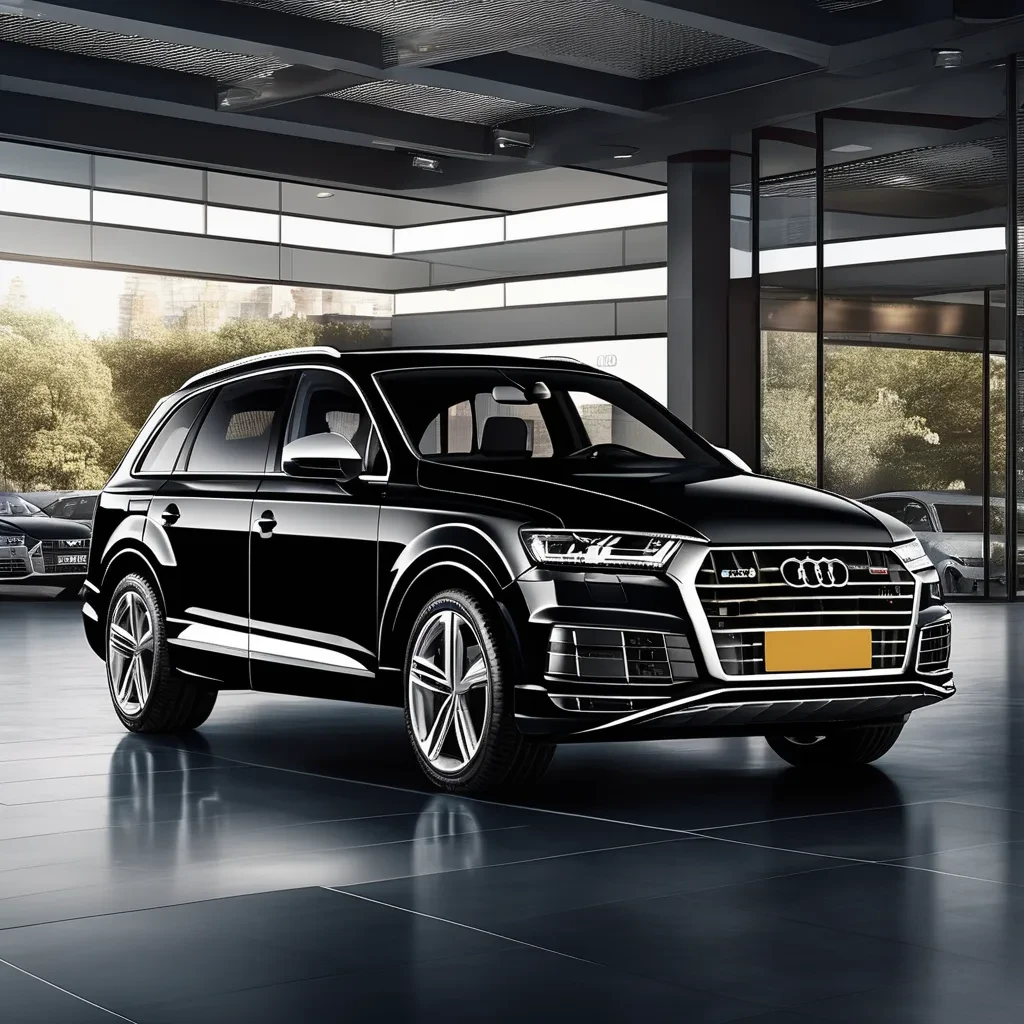
Read Also: Audi Bluetooth Function is Currently Unavailable – Discuss with us!
Is the Audi Q7 a Good Car to Purchase?
We’ve covered various aspects of the Audi Q7, including which years are worth buying and which to avoid. So, is the Audi Q7 a worthwhile investment?
Unfortunately, we do not recommend the Audi Q7. It’s costly and has a poor reliability rating, which can lead to a frustrating experience for owners.
How Long Does an Audi Q7 Engine Last?
The engine is the heart of the Audi Q7. The longer the engine lasts, the more years you’ll get from your vehicle. A typical Audi Q7 engine should last between 150,000 and 200,000 miles. With proper care, it can remain functional for at least a decade or even longer.
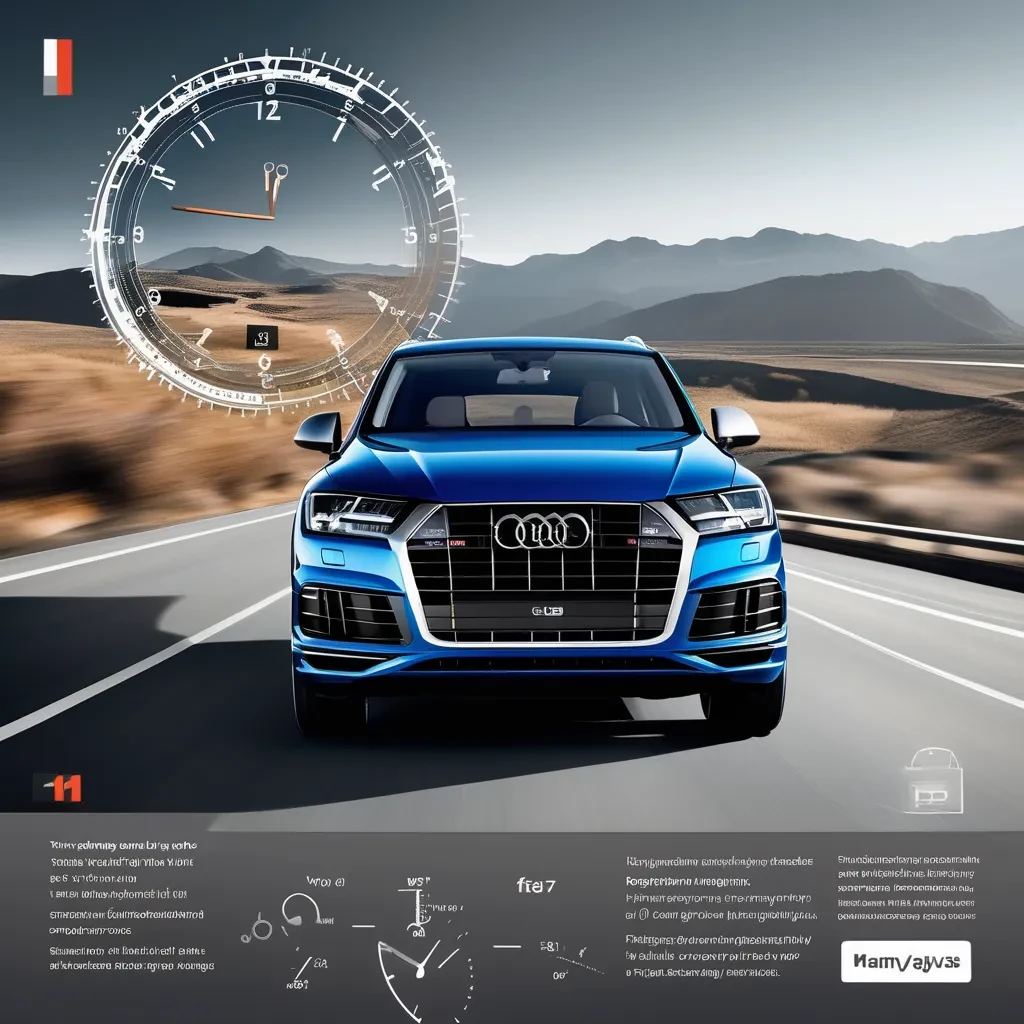
Read Also: Drive System Malfunction Audi – Everything you need to know!
Which Year Models of Audi Q7 Are Least Reliable?
Unfortunately, some versions of the Audi Q7 are less reliable and can be frustrating to own.
Here are the least dependable Audi Q7 models:
- 2007 Audi Q7
- 2015 Audi Q7
- 2017 Audi Q7
- 2018 Audi Q7
- 2019 Audi Q7
- 2021 Audi Q7
These models have a history of reliability issues.
Among these, the 2017 Audi Q7 is the least reliable, primarily due to engine problems. The 2017 model experienced issues such as engine failure and excessive oil consumption.
The Audi Q7’s Worst Years Based on Complaints, Issue Severity, and Recalls
Let’s examine the Audi Q7’s worst years based on reported complaints, issue severity, and recalls. Here’s a breakdown of the data:
2007 (73%):
This year had a high number of reported issues, including mechanical failures, electrical problems, and other concerns.
2008 (23%):
Although still notable, the number of reported issues in 2008 was lower compared to 2007 and 2017, indicating some concerns but less severe than earlier years.
2015 (22%):
The 2015 model also had relatively fewer issues, suggesting improved reliability compared to earlier years.
2017 (42%):
This year saw a significant number of reported issues, though slightly fewer than in 2007, indicating ongoing or new problems.
2018 (22%):
Similar to 2008, the 2018 model had a relatively lower number of issues, potentially reflecting improvements in reliability.
Overall, these percentages offer insight into the frequency and severity of reported problems for different Audi Q7 model years, helping potential buyers make more informed decisions.
Read Also: Drive System Malfunction Audi Q7 – Let’s Explore!
Which of the Audi Q7’s problems is the worst?
Here’s a simplified and valuable summary of the most serious issues with various Audi Q7 models:
2007 Audi Q7:
There have been numerous serious problems with the 2007 Audi Q7.
- Electrical Problems: Issues with lights, windows, and entertainment systems.
- Fuel System Troubles: Reports of leaks and pump failures.
- Engine Concerns: Common problems include engine leaks, misfires, and premature wear.
- Cooling System Malfunctions: Problems with overheating and coolant leaks.
- Unknown Issues: Some owners experience mysterious noises and vibrations.
Despite its luxury and power, these problems are concerning, and Audi should take action to ensure a safe and reliable driving experience.
2013 Audi Q7:
Key issues with the 2013 Audi Q7 include:
- Visibility/Wiper Problems: Windshield wipers fail to function properly, leaving streaks and compromising visibility.
- Engine Issues: Problems with stalling or loss of power while driving.
- Fuel/Propulsion System Problems: Malfunctions with the fuel pump or fuel injector.
- Electrical System Problems: Issues with the battery and alternator.
- Powertrain Problems: Transmission and drivetrain issues.
These problems impact the vehicle’s performance, safety, and overall driving experience. Addressing them promptly is crucial for maintaining customer satisfaction and vehicle longevity.
Read Also: Audi q8 throttle lag fix – Don’t take a risk!
2014 Audi Q7:
The 2014 Audi Q7, while remarkable, has issues with:
- Engine
- Electrical System
- Fuel and Propulsion System
- Visibility/Wiper System
- Vehicle Speed Control
This car is complicated, therefore it takes skill to keep it functioning well.
2010 Audi Q7:
The 2010 Audi Q7, though attractive, has notable weaknesses, especially in:
- Diesel Fuel System
- Engine
- Visibility/Wiper System
It has a good vehicle speed control system and attracts those who are interested in luxury and technology.
2011 Audi Q7:
There are severe problems with the 2011 Audi Q7 that need to be addressed.
- Visibility/Wiper System
- Fuel and Propulsion System
- Electrical System
- Engine
Read Also: Audi Q5 Years to Avoid – Don’t take risks!
Which inlet manifold problems does the Audi Q 7 have?
The engine warning light in the Audi Q7 Mk 1 can signify various issues, often linked to the inlet manifold flap and its actuator. To pinpoint the problem, use a fault-code reader on the OBD port.
Codes like P3135, 19591, or 4C87 indicate issues with Inlet Manifold Flap 1, while P1018, 17426, or 4412 suggest problems with Inlet Manifold Flap 2. Additionally, codes such as P2008 or P2011 point to issues with the control unit for Cylinder Bank 1 or Bank 2, respectively.
Once you’ve identified the problem, inspect and, if necessary, replace the faulty manifold flap or actuator motor. The Haynes Q7 Autofix guide can assist you in completing this process efficiently.
Read Also: Do Audi Dealers Negotiate? – A Complete Visual Guide!
Best Audi Q7 engine
The best engine for the Audi Q7 is the 3.0-liter V6 TFSI. This supercharged engine offers a great balance of power and efficiency, delivering strong acceleration and smooth performance. Known for its reliability, it has fewer reported issues and requires less frequent maintenance.
Despite its power, it provides decent fuel economy, making it practical for both city and highway driving. Equipped with advanced fuel injection and turbocharging technologies, it enhances performance while maintaining efficiency. Overall, the 3.0-liter V6 TFSI is a versatile and dependable choice for the Audi Q7.
Frequently Asked Questions:
How reliable are older Audi Q7 models?
Older Audi Q7 models, especially those from the early years like 2007 and 2012, tend to be less reliable. They are more prone to mechanical and electrical issues compared to newer models.
Are there any specific Audi Q7 years known for transmission issues?
Yes, the 2007 and 2012 Audi Q7 models are particularly known for transmission issues. These problems can be costly to repair and may affect the overall performance of the vehicle.
Should I consider buying a used Audi Q7 from 2007 or 2012?
It is generally advised to avoid purchasing used Audi Q7 models from the years 2007 and 2012 due to their known reliability issues and higher likelihood of mechanical problems.
Are newer Audi Q7 models more reliable than older ones?
Yes, newer Audi Q7 models are generally more reliable than older ones. Improvements in engineering and technology have addressed many of the issues found in earlier models, making them a better choice for potential buyers.
Are there any known issues with the 2013 Audi Q7?
The 2013 Audi Q7 may experience issues with its fuel system and navigation system. While generally more reliable than earlier models, it’s still important to check for any specific problems.
What should I know about the 2014 Audi Q7 before buying?
The 2014 Audi Q7 has been reported to have fewer issues than its predecessors, but buyers should still be aware of potential problems with the air suspension and electronics.
Are there reliability concerns with the 2015 Audi Q7?
The 2015 Audi Q7 is considered more reliable than earlier models. However, some owners have reported issues with the vehicle’s infotainment system and minor electrical components.
How do the 2016 and 2017 Audi Q7 models compare in terms of reliability?
Both the 2016 and 2017 Audi Q7 models are generally more reliable than older years. They benefit from updates in technology and engineering, reducing the likelihood of serious issues.
What are some frequent problems with the 2018 Audi Q7?
The 2018 Audi Q7 is generally reliable, but some owners have noted issues with the vehicle’s software and occasional mechanical problems. Frequent upkeep can lessen these worries.
Which Audi Q7 years should I avoid?
Steer clear of the models from 2007, 2015, 2018, 2019, and 2021. These years have been reported as the least reliable on the road.
Did any of the Audi Q7 years to avoid other significant issues?
Other problematic years for the Audi Q7 have experienced major engine and transmission issues. Stay alert for any signs of serious problems with these components.
Are newer Audi Q7 models more reliable?
Most newer Audi Q7 models tend to be more reliable. They are generally a better choice compared to many of the older models.
Is the Audi Q7 a good car to purchase?
The Audi Q7 is not recommended due to its frequent issues and high costs, which may not justify the purchase for the average buyer.
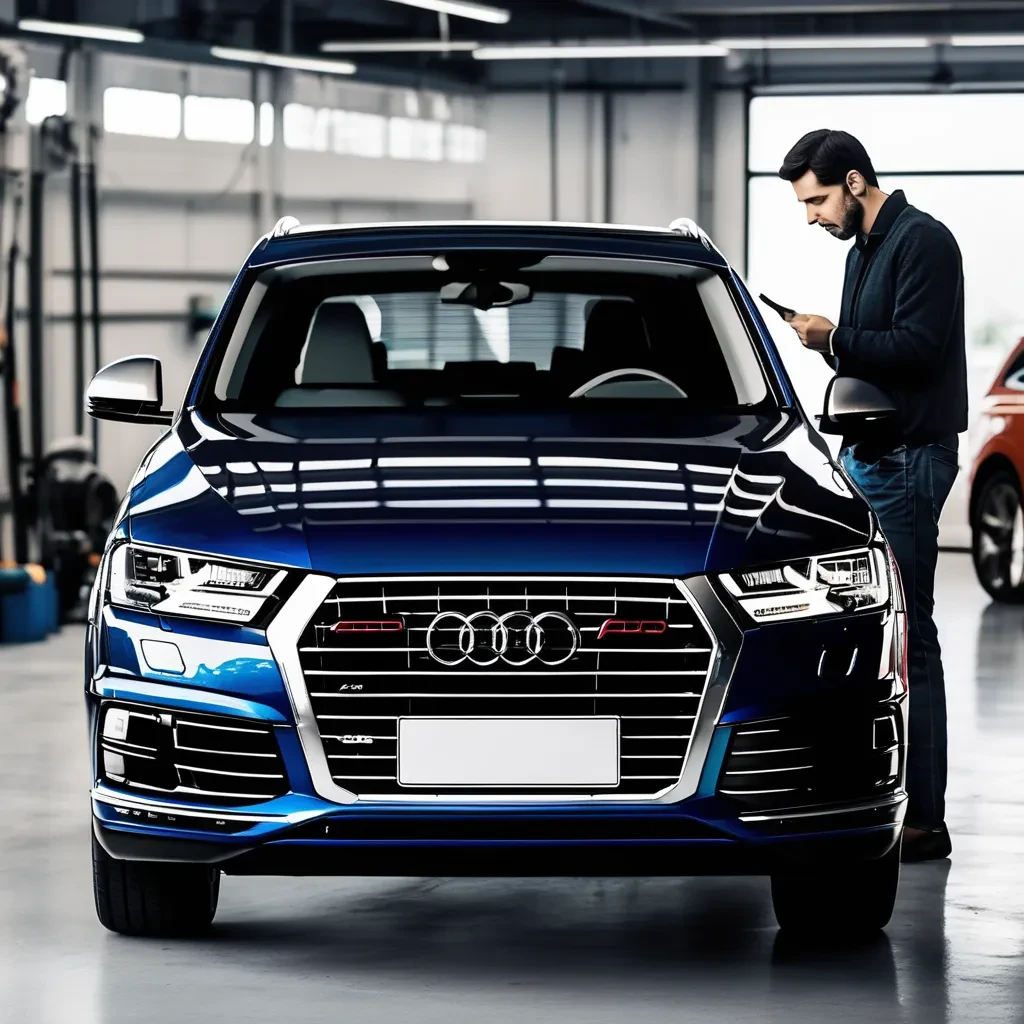
Conclusion:
In conclusion,
The Audi Q7 has encountered various problems over the years, including issues with the electrical system, fuel and propulsion systems, engine and cooling components, and visibility/wiper functions.
Steer clear of Audi Q7 models from the years 2015, 2017, 2018, 2019, and 2021.
Owners of the Audi Q7 should remain alert to these potential problems and take timely action to address them.

